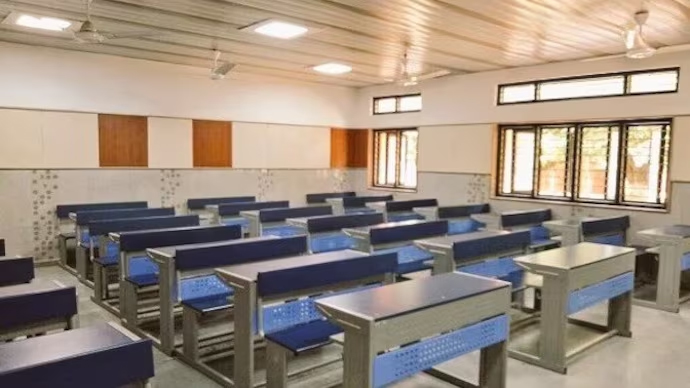New Delhi : Following a recent Delhi High Court judgment, the Delhi Government has directed schools to formulate policies regarding students’ use of smartphones.
The Delhi High Court has outlined guiding principles to strike a balance between the advantages and potential drawbacks of allowing students to use smartphones while in school.
Accordingly, the Education Department of the Delhi Government has instructed all heads of government, government-aided, and unaided recognised private schools in Delhi to develop and implement a school-level policy on this matter.
The Directorate of Education, in its circular dated April 17, 2025, states, “The Hon’ble court has drawn up guiding principles to balance the beneficial and deleterious effect of permitting the use of smartphones in the hands of students while attending the school. Accordingly, all the Heads of Govt., Govt. Aided & Unaided Recognised Private Schools of Delhi are hereby directed to develop a policy on the above said matter on school level and implement the same.”
Recently, the Delhi High Court, in a significant ruling, has refused to ban children from bringing smartphones to school. The court clarified in its decision that the use of smartphones does not have a negative impact on teaching, discipline, or the overall educational environment in the classroom.
The judgment passed by Justice Anup Jairam Bhambhani came during the hearing of a petition filed by a student, which sought the issuance of guidelines regarding the use of mobile phones in schools. A minor student represented by Advocate Ashu Bidhuri stated that during the hearing, the parties involved, particularly the Kendriya Vidyalaya Sangathan (KVS), requested the court to establish guidelines for the use of smartphones in schools.
The court noted that its intent was to establish guiding principles to balance the positive and negative effects of allowing students to use smartphones while attending school. As a policy, students should not be barred from carrying smartphones to school, but the use of smartphones must be regulated and monitored, it said.
Where possible, arrangements should be made for the safekeeping of smartphones. Students should be required to deposit their smartphones when they enter school and retrieve them when returning home, the court said.
Smartphones should not disrupt classroom teaching, discipline, or the overall educational atmosphere. Thus, the use of smartphones in class must be prohibited. Additionally, the use of cameras and recording facilities on smartphones should be barred in common areas of the school as well as in school vehicles.
Schools must educate students on responsible online behaviour, digital manners, and the ethical use of smartphones. Students should be counselled that high levels of screen time and social media engagement can lead to anxiety, diminished attention spans, and cyberbullying.
The policy should permit the use of smartphones for connectivity for purposes of safety and co-ordination but disallow the use of smartphones for entertainment/recreational use.
The policy on regulating and monitoring the use of smartphones in school should be made in consultation with parents, educators, and experts to evolve a balanced approach that addresses the needs and concerns of all parties involved.
Schools should have the discretion to implement policies that fit their unique situations, whether that involves allowing limited use of smartphones in specified areas of the school or enforcing stricter bans, including bans during specific times and events.
The policy should establish transparent, fair, and enforceable consequences for violation of the rules for the use of smartphones in school, ensuring consistent application without being excessively harsh. Possible consequences could include confiscation of smartphones for a certain time-period; or barring a student from carrying a smartphone for specified number of days, as a measure of disciplining an errant student.
Given the fast-paced advancement of technology, the policy should be regularly reviewed and revised to tackle emerging challenges.
During the proceedings, the court invited submissions, suggestions, and material from the National Commission for Protection of Child Rights, the Delhi Commission for Protection of Child Rights, and the Kendriya Vidyalaya Sangathan, who were present, to address the aforementioned issue.






